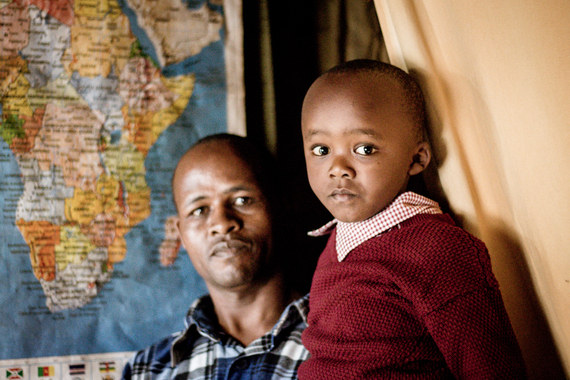The soaring rhetoric of those in power should always be greeted with a healthy amount of skepticism. Or at least that's how I usually feel. But yesterday as I listened to Jim Kim, President of the World Bank, talk about his commitment to protecting, caring and investing in children, especially those most likely to be left behind -- an argument that was one part emotional, one part scientific and one part economic -- I believed him completely. And the feeling hasn't worn off.
It's not just that everything he said was true -- because it always has been -- it's that I'm now convinced the head of the World Bank believes it as much as I do.
Kim's speech at the Human Capital Summit came on the heels of Wednesday's launch of a much awaited new three-part series on Early Childhood Development from The Lancet which presents new estimates that at least 250 million children are at risk of poor development -- trapping them in a cycle of poverty by harming their cognitive growth and wellbeing and subsequently diminishing their future earning potential by as much as 25 percent.
The economic impacts go far beyond the individual and family, for low and middle-income countries, the lost economic opportunity of continuing to allow millions of children to suffer from stunting, inadequate stimulation and care could be as much as twice what these countries spend nationally on health.
When The Lancet says that four out of ten children worldwide are seriously limited in accessing what they need for healthy development we all have to sit up and listen. When that is followed by the President of the World Bank, The Executive Director of UNICEF and Finance Ministers from Pakistan to Tanzania, talking seriously about doing more and better, something is serious is afoot.
The case for early childhood development is airtight. It's the perfect cocktail of science, economics, common sense and a strong moral compass, but globally we are still way behind on putting all of these pieces together and taking the next necessary steps -- investing the billions necessary to scale up all of the interventions that children need. In particular, we continue to leave behind those children and families who are most vulnerable.
These children most likely to be left behind -- and the vast gaps between rich and poor -- is the focus of a new Theirworld equity snapshot on early childhood development across 53 countries in Africa. The data tells a clear story about how humanity has lost its way in supporting the most vulnerable children. Millions of children are being left behind at every development milestone -- those most likely to be left behind are disproportionately poor.
Among other things, the equity lense of this new snapshot shows that chronic malnutrition and access to pre-primary school is unequal or extremely unequal between the poorest and richest households in 80 per cent of countries and access to the health care system is unequal between richest and poorest in 60 per cent of countries.
Yesterday's rhetoric may actually signal an important turning point. That was the feeling in the room. We have the attention of political leaders with resources to do more. As Tony Lake, Executive Director of UNICEF noted, 'We must turn the science into alarm bells.' Long time advocate Joanne Carter agreed and went farther, 'We must turn the alarm bells into resources and results.'
We know enough from science, economics and our own common sense to accelerate our collective efforts now. And we know the costs of inaction.
The future of our world depends on getting this right.

